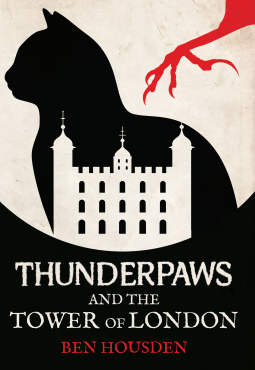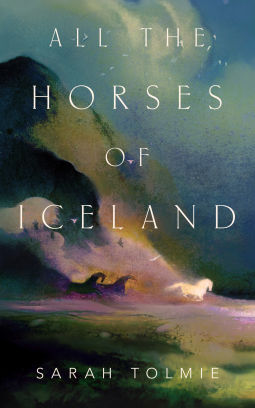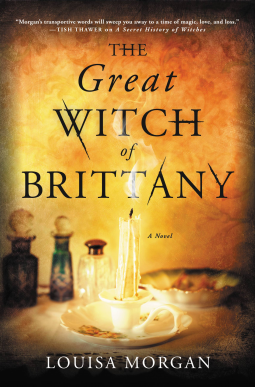Support Borderlands Books, an indie bookstore, and get a hardcover copy of The Laran Gambit with a bookplate autographed by me. Link here.
Tuesday, November 29, 2022
Support Borderlands Books!
Support Borderlands Books, an indie bookstore, and get a hardcover copy of The Laran Gambit with a bookplate autographed by me. Link here.
Monday, November 28, 2022
Guest Post: Do Women Make Better Leaders?
My older daughter, Sarah, currently a college student, earned praise for her essay on the leadership role of women. With her permission and no small measure of pride, I share it with you.
The assignment was: Some theorists have suggested that the world would be a much better place to live (i.e., fewer conflicts, wars) if women held all the positions of leadership. Do you agree? Why or why not? Do women in positions of power tend to behave in more stereotypically female (caring, nurturing) or male (aggressive, dominant) ways?
Would the world be better off if it was run by women? This deceptively simple question is best broken down into components: Are individual women better leaders than individual men? Does the culture of leadership drive women in positions of power to behave in stereotypically male ways? And, What is the effect when the majority of leaders in the legislative space are female?
The first two sub-questions are related. Are individual women superior leaders? Perhaps not, because for every Jacinda Ardern or Angela Merkel there may be a Margaret Thatcher or Marine Le Pen. Perhaps the character traits expected by the electorate, and the strategies employed by powerful women to attain and defend their status, weeds out individuals who behave in a cooperative, nurturing manner. It is quite plausible that the culture of power, or the traits demanded of leaders regardless of gender, is so pervasive that the theoretical advantages of female leadership are eliminated. What does the data show?
A Forbes analysis indicated, and an academic analysis later confirmed, that the countries which fared best during the pandemic were led by women: Germany, Taiwan, New Zealand, Iceland, Finland, Norway and Denmark all took the pandemic seriously and took early steps to safeguard health. This association has been found to be systematic among a sample of 194 countries (Garikipati & Kambhampati, 2020). Iceland’s Prime Minister Katrín Jakobsdóttir instituted free testing, while Taiwan’s Tsai Ing-wen instituted 124 pandemic-curbing measures early, in January of 2020, and by April were sending face masks abroad. Their success is punctuated by the expression of traditionally feminine traits: Norway’s Prime Minister Erna Solberg went on live television to reassure children that it was okay to feel scared. Just try to catch a strong-man leader such as Bolsonaro or Putin doing that! (Wittenberg-Cox, 2020)
Friday, November 25, 2022
Short Book Reviews: A Cat in London Tower
Thunderpaws and the Tower of London (Nature's Claw Series, Book 1), by Ben Housden (High Gate Press)
When Teufel the cat (who hates his nickname, “Thunderpaws”)
moves into the Tower of London with his chaplain owner, he is less than
thrilled. The trip itself, including being sedated and transported, was bad
enough, but now he finds the new rules insufferable: no doing his business on
the lawn, no wandering at all hours, and no chasing the sacred ravens.
Teufel is a Cat of Attitude, snark being primary among them, and he is not about
to play nicely or restrain his innate Cat Nature. In his attempts to exercise
his feline right to kill small prey and anything with wings, he encounters a
mystical mouse, a couple of ghostly cats, and the deceased spirits of humans
who have died in the Tower. Queen Anne, Lady Jane Grey, and Sir Walter Raleigh
are bad enough, with Anne planning to destroy the internet. But when King
Richard III and Guy Fawkes hatch a plot to take over London (and the world),
Teufel is drawn in to a maze of dark schemes and darker magic. As it turns out,
he’s not nearly as savvy as he thinks he is.
Among the many delights of the book are Teufel’s sarcastic
voice, details about the ghosts, and the army of lady rats led by a giant rat
named Elvis. I wish there had been more exploration of how Teufel changes with
his misadventures, especially those that were his own fault. It was a good
thing I read the book on my Kindle, because quite a number of references that
would have been obvious to Londoners escaped this Californian at first.
My only real issue, however, was the extended epilogue. It’s
one thing to set up a sequel, but to go on at length detracts from the
satisfaction of defeating the agents of evil and then taking a break. Sequels,
as opposed to books in a single multi-volume story arc, run the risk of being
episodic, especially when the beginning of the next is inserted into the end of
the first, thereby making it not a true end at all.
Despite my quibble about the epilog, this book should have
special appeal to cat fanciers (and perhaps Londoners). The illustrations are
particularly wonderful.
Thursday, November 24, 2022
Happy Thanksgiving: Hard Sauce recipe
In case your dessert wasn't rich enough, here's a delectation to top it with. It's incredibly sweet and rich, compared to ordinary whipped cream. This recipe comes from my first mother-in-law and I believe it had been in her family for several generations. This version is in my (then teenaged) daughter's handwriting and is transcribed as written. See the note below.
Hard Sauce
1/2 c. sugar
1/2 c. butter
1 tsp. vanilla
1/2 c. condensed* milk
1 Tbsp. flour
Mix sugar and butter well.
Cook flour and milk into a THICK paste.
When paste is body temp, combine with butter and sugar.
Beat on high speed until sugar granules are gone. Add in vanilla and beat until mixed.
Enjoy.
*It is not clear to me whether this means sweetened condensed milk or unsweetened evaporated milk, although I suspect it's the former. If you prepare this recipe, please let me know which you used and how it turned out.
Monday, November 21, 2022
Gifts to Give Yourself This Season
Gifts of the Season
Give yourself grace when you make a mistake.
Give yourself credit for your accomplishments.
Give yourself permission to ask for help.
Give yourself the same compassion you give to those you love.
Adapted from Mirror Coaching
Friday, November 18, 2022
Short Book Reviews: A Fabled Journey to the East, With Horses
All the Horses of Iceland, by Sarah Tolmie (Tordotcom)
In a long-ago time, a Norse trader embarks upon an expedition
to Central Asia in search of riches. He hooks up with an experienced Jewish
merchant as they travel through Khazaria to the steppes of Mongolia, through
war-ravaged territory and vast, open lands. He encounters new peoples and their
magic, bringing the wisdom of his people and learning much more. When he
returns to his home in Iceland many years later with a herd of tough steppe
horses, led by a white mare without a name that sometimes only he can see, he
is a changed man.
The best thing about this short novel is the wonderful authorial
voice. Tolmie conveys both familiar and unfamiliar customs and assumptions
without modern exposition. That is, Eyvind remarks on events from the context
of his own culture and understanding of others, not from a modern narrator’s
viewpoint. The effect is to immerse us into a world view informed by his
open-mindedness. He takes the customs and teachings of the people he encounters
on their own terms, with an occasional dry and witty comment. He’s incredibly
generous, even when he disagrees. His open-mindedness evokes an open landscape,
both of thought and of physical distance. It’s very deftly done. While there is
plenty of adventure to be had, for me the heart of the story is very much the exploration
of a vivid world only hinted at in history books.
Friday, November 11, 2022
Book Review: Love and Survival Under the Iron Heel
In Light’s Shadow, by Warren Rochelle (JMS Books)
This dystopic urban fantasy blends a sweet m/m romance, a
coming-of-age story, and a horrific alternate-history world. Magic and magical creatures
exist, although throughout the history of this world’s United States, the
Columbian Empire, they have been progressively more restricted and then criminalized.
Even a hint of returning the “the Relaxation” is enough to ignite assassination
attempts. Meanwhile, fairies are locked away in ghettoes or have gone into hiding,
and magical beasts, such as gryphons and unicorns, are kept in zoos. Hand in
hand with oppression of magical beings comes proscriptions against same-sex
relationships and freedom of speech. Church, school, and state unite in
systematic brainwashing and instilling fear and hatred for anyone who deviates
from a rigidly conformist norm.
Gavin Booker has grown up in such an environment. His
half-fairy mother was so traumatized by discrimination that she has become
pathologically secretive. Although “passing” for human-normal by marriage, she imparts
her paranoid to Gavin. He has always known he was different, but with the
stirrings of his earliest childhood attraction to other boys, his very life is
now at risk. His mother is terrified that such close friendships may cause them
both to be revealed as hybrids, and she pressures him to “pass” as straight. At
the same time, she takes him to a healer who dispenses medicines to suppress
the beautiful golden glow of fairies and teaches him psychological suppression
methods.
Gavin’s life becomes one of unending denial of his deepest
feelings and his true nature. The price of exposure is not just immediate
public execution without trial. It has consequences for the family and friends
of the accused. Suicides by gay, fairy youth are rampant, and Gavin himself, a
teenager drowning in despair, attempts to end his own life. One of the few
consistent bright spots in his world is his relationship with a golden fairy
boy who visits him in dreams. Their emerging love and sexual bonding sustain
Gavin through the deaths and disappearances of every other boy he’s cared
about.
The Columbian Empire is alarmingly like our own United
States. Rochelle fleshes out Gavin’s daily life with details like news reports by
Walter Conkrite, popular obsession with “the royals,” and almost-accurate bits
like Aaron Copeland’s “Appalachian Summer” (my favorite)
Rochelle’s portrayal of the intense psychological
devastation of unrelenting fear, the toxic nature of secrets, and the impact
upon self-esteem is chillingly accurate. I grew up in the 1950s, when my father
was the target of a McCarthy Era probe and a lawsuit brought by the Justice
Department to take away his citizenship. Although I was too young to know about
the FBI surveillance of our family or the relatives who went “underground,” I
have vivid memories of the anxiety my family endured. Yet even in those
dreadful times there were beacons of light: friends, family members, sympathetic
and courageous attorneys, organizations like the ACLU, labor unions, and Quaker
and other religious groups who, often at great risk to themselves, stood up for
the rights of those under suspicion.
Although in Rochelle’s world, there is an underground of
sorts, I found the absence of public resistance disappointing. The Columbian
Empire arises from the same traditions of rights and limits on power as the
United States today, dating back to the Magna Carta and earlier. At the same
time, the unrelenting targeting of both gays and hybrids is an important dramatic
element in how much it intensifies the pressure on Gavin and others.
One of the strengths of this book is how many different ways
a reader can look at it. Certainly, it’s a gay love story. It’s also a
psychological and political thriller. It’s an examination of the corrosive
effects of ignorance and hatred. In all these areas, it has broad appeal.
Tuesday, November 8, 2022
Tips to manage stress during the midterm elections
In The Conversation, a clinical psychologist offers advice on managing stress during this stressful time.
I've excerpted the article here (the "Cliff's Notes" version). Click through to read the whole thing.
1. Put the phone down!
While it is tempting to stay glued to your devices, never-ending doomscrolling and screen-refreshing can become overwhelming and keep you in a state of tension and constant vigilance. Excessive consumption of news and social media predicts poorer long-term mental health during times of crisis.
Plan some breaks where you can engage in activities that take your mind off politics.
2. Uncertainty doesn’t equal catastrophe
When anxious – as many in the U.S. are right now – people tend to assign threatening meanings to ambiguous situations. But this tendency is neither reliably accurate nor helpful. Jumping to catastrophic conclusions is like setting off a series of false alarms that exaggerate your sense of threat.
3. Don’t retreat into bed
The feeling of deep disappointment about election results you don’t like can trigger a desire to withdraw and hole up. Staying engaged in activities that give you a sense of accomplishment, pleasure or meaning can make managing this time far less painful.
4. Remember, it won’t always feel this intense
It’s normal and understandable to feel overwhelmed by current events. Focus on what will help you manage this day without punishing yourself for being upset or feeling depleted. Human beings tend to be remarkably resilient, even in the face of tremendous stress and trauma.
5. Don’t go through this time alone
Feeling isolated, whether physically or emotionally, can make a hard time feel worse. When people experience acute stress, they cope much better if they have social support.
6. Stay regular
While self-care may seem unimportant, attending to those basic bodily needs can go a long way toward keeping your internal resources sufficiently replenished so you can meet the high demands of this time. There is increasing evidence that poor sleep is closely connected to many mental and emotional health difficulties.
7. Help others
There’s so much during this time that you cannot control – there is no magic wand that speeds up vote counting in critical contested races or makes climate resolutions between countries come sooner. But taking action to improve things now for the people around you both helps others and reminds you that you can make a difference in meaningful ways. It’s a win-win.
8. Add to your toolbox
Each person is different in what helps them to relax or feel more centered. For many people, online mindfulness or cognitive therapy exercises can make a big difference. Check out online mental health programs that have been reviewed by experts and pick the resource that’s right for you.
9. Offer compassion to yourself
The combination of pandemic stresses, economic worries, social injustices, climate breakdown and more means few of us will be at our best right now as we try to just make it through the day. No one is making it through this time unscathed, so kindness to ourselves and others is desperately needed.
10. Reach out if you need additional help
If recommendations 1-9 aren’t cutting it, there are lots of resources to help people through this difficult period:
- National Suicide Prevention Lifeline: 988
- Crisis Text Line: Text HOME to 741741
- Find a therapist
- Find culturally competent mental health care
Be patient, stay calm and keep the faith is a tall order. I’ll be happy if I can get most of the way there.
Monday, November 7, 2022
A Moment of Writing Inspiration
No one else in the wide world, since the dawn of time, has ever seen the world as you do, or can explain it as you can. This is what you have to offer that no one else can.
- Edith Layton
Friday, November 4, 2022
Short Book Reviews: A Witch's Life
The Great Witch of Brittany, by Louisa Morgan (Redhook)
In mid-18th Century Brittany, a clan of Romani
travels from town to town, trading and earning money by other means. Teenager Ursule Orchière
has been raised in the stories and customs of her female ancestors, the great
witches of the past. Her fortune-teller mother is not among them, using
dramatic skill and common sense on her gullible village women customers. For
Ursule, however, the “magic crystal” that has been passed through generations
is more than a stage prop. The crystal and the grimoire she learns to read in
secret open a world of spirits and spells to her. When her mother is accused of
being a witch, the two end up on the run in an increasingly dangerous landscape
as the French Revolution draws ever nearer…
The story is full of dramatic tension and plot twists, yet in
the end it is not about a series of events. It’s about a life well lived with
courage and kindness. Even when Ursule and her mother found shelter working as
laborers for a farm family, I kept turning the pages to see what would happen
next. Morgan’s authorial touch is deft and sure, inviting the reader to enter
fully into this fascinating glimpse into history and the very real people in
it.
Highly recommended.








